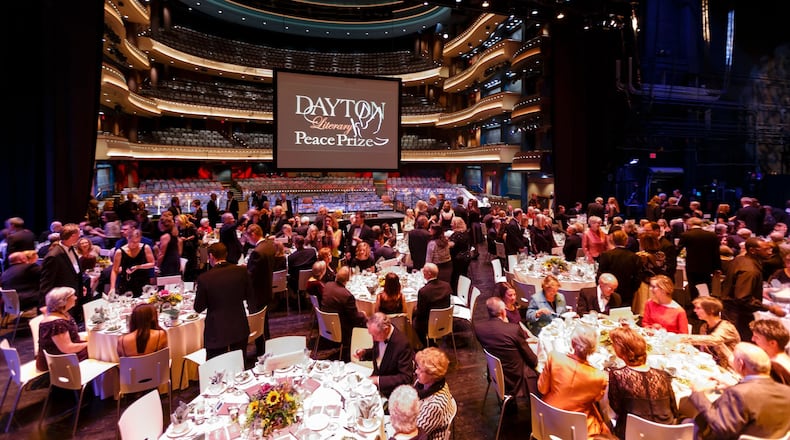Peace often begins with reading, enlightenment, empathy built through insight from writers whose ethnicity, religion, culture, gender, sense of history and truth differ from our own. Empathy inspires social reform, justice and, ultimately, peace.
“Through identifying with characters and people who are nothing like us, through destroying the walls between ourselves and others so easy to hide behind, we who love words, learn to love others. This is how literature inherently stands for peace.”— Viet Thanh Nguyen.
When reflecting on the power of words to advance peace, winners mention empathy explicitly or describe it implicitly. Golnaz Hashemzadeh Bonde wrote, “The strength of the written world in creating empathy is the most powerful force I know.”
Richard Powers gave a pithy truth, “No justice, no peace. No kinship, no justice. No empathy, no kinship. Reading and writing are exercises in empathy.” Eli Saslow shared, “The best journalism requires investigation, but ultimately it is an act of understanding, empathy and peace.”
Holbrooke winners made those connections.
Marilynne Robinson believes, “Where men and women have failed to love, literature may inspire greater love for those we’d once thought we feared or hated.”
For Barbara Kingsolver reading is exercising. “We are not born with empathy. It develops like a muscle; it strengthens with use. And that’s the basis of my belief that literature is a tool for creating peace.” Geraldine Brooks knows words foster peace: “We have to find our common identity. The human heart remains the human heart.”
The very act of writing is outreach. Ta-Nehesi Coates says, “Writing is always translating the specificity of one’s roots or expertise or even one’s own mind into language that can be absorbed and assimilated into the consciousness of a broader audience.” John Irving’s writing is his platform; “if I’ve written characters whose stories give readers access to the breadth of human experience and emotion, I’ve done my job as a writer.”
Writing is a calling for Adam Johnson: “The people who have a gift for storytelling also have a duty to tell the stories of others who cannot tell their own. Only the imaginative reach of narrative can restore the humanity of people who are reduced to abstractions and caricatures in our popular culture.”
“Using the written word to eradicate borders reminds us we are called to the pursuit of peace,” Patricia Engel knows, but Bob Shacochis advised, “Why are books subversive? Because they exchange ignorance for knowledge and empathy.”
Anthony Doerr acknowledges, “In the best novels, stories, and poems, we are reminded that even the most distant soul is exactly as human as we are. Literature develops compassion, and empathy — a good piece of writing should be an antidote to hatred.” Dave Eggers said simply, “The best weapon we have against war is empathy.”
Elie Wiesel, “Are we so naïve as to think that we can bring peace to the world through words? Yes, we are.”
Yes, we are.
Sharon Rab, an educator and writer, is the founder and board of trustees president of The Dayton Literary Peace Prize Foundation, which won the 2019 Irma Lazarus Governor’s Award for the Arts. Learn more about the Dayton Literary Peace Prize at daytonliterarypeaceprize.org.

